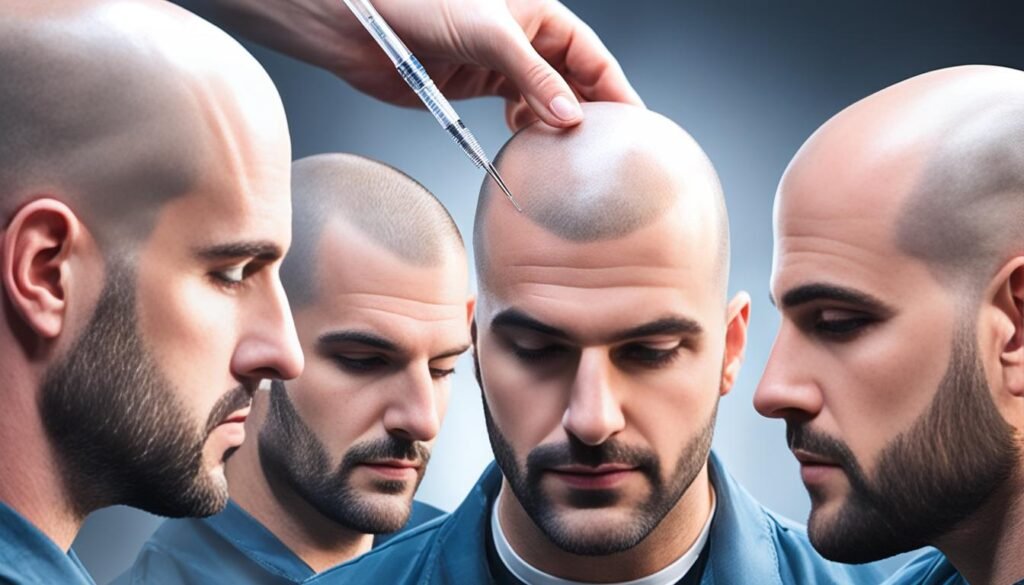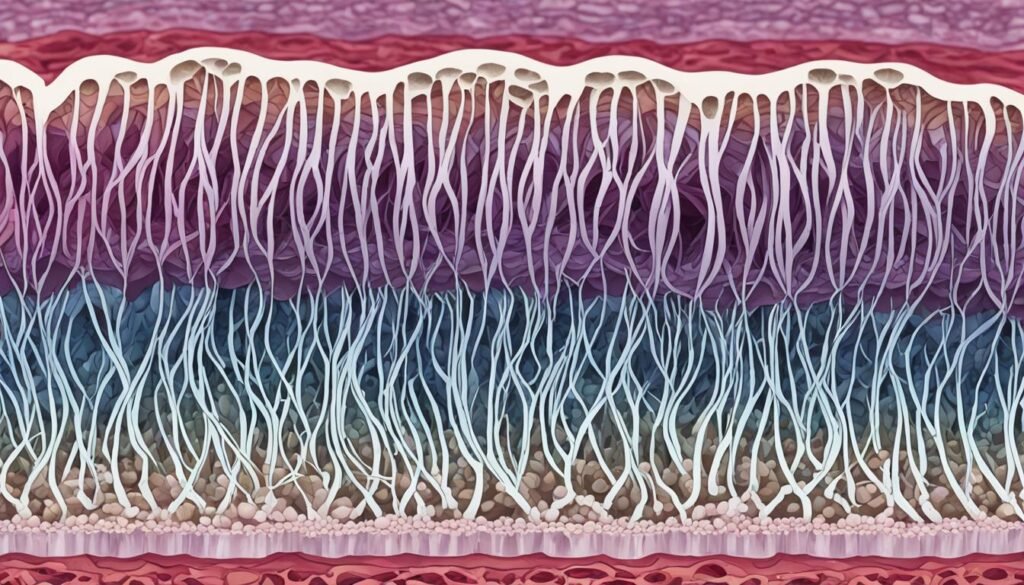

Scalp Micropigmentation (SMP) is changing the game in hair restoration. It’s a high-tech solution for people who are losing their hair or their hair is getting thinner. This non-surgical procedure uses special pigments on the scalp to look like hair follicles. It brings back a full head of hair and lets people try different styles and looks.
Now, how does SMP actually do its thing, and what options are available? Today, we’re getting into the details of scalp micropigmentation. We will look at the different approaches. After reading this, you’ll know what’s what for your hair journey.
So, what makes each scalp micropigmentation technique different? How do you pick the best one for you? Let’s peel back the curtain on the SMP world. Together, we’ll find the perfect technique for you.
Scalp Micropigmentation (SMP) is key in any hair surgeon’s work. It uses small needles and gray pigment to make your scalp look like it’s covered in thick hair. This is known as a medical-grade micro-tattooing.
SMP is a non-surgical treatment. It makes your scalp seem fuller and more natural. It’s a great choice for those with hair loss or thinning hair, offering a unique way to restore hair.
A special microneedle is used to put tiny pigment particles in your scalp’s top layers. This makes it seem like real hair follicles, giving a natural hairline that matches your personal style.
SMP is good for many scalp and hair problems, including male pattern baldness, thinning hair, scars, and alopecia. Skilled SMP practitioners choose the right pigments to help your hair look fuller and natural.

It’s important to know the various scalp micropigmentation techniques and treatments to find what’s best for you. Whether you want a buzz cut, a clear hairline, or gentle stubble, SMP has lots of options to make sure you’re happy with the results.
Choosing scalp micropigmentation means picking a versatile and effective way to boost your hair’s look. Working with a talented SMP expert can help you feel good about your hair again.
To really know scalp micropigmentation (SMP), we must look at how pigments interact with skin. The scalp’s anatomy is special, with fewer layers at the top and more at the sides. Practitioners need to be skilled. They must adjust the needle depth so the pigment goes into the top skin layers, called the epidermis.
The scalp has many layers, each important for SMP. The top layer, the epidermis, is where the pigment goes for natural hair look. Under the epidermis is the dermis, holding hair roots and blood vessels for nutrition.
Knowing scalp and hair anatomy, along with physiology and histology, plus the pigments in SMP, helps. It guarantees the pigments do their job right for natural results. This info is key for SMP practitioners. They can offer custom, top-notch ways to deal with hair loss that fit each client well.
| Scalp Layer | Description | Significance for SMP |
|---|---|---|
| Epidermis | The top layer of the scalp, made of sublayers. Here’s where pigment goes in the SMP process. | Adjusting needle depth is crucial for a natural look. It ensures the pigment stays in the epidermis. |
| Dermis | The layer under the epidermis, with hair roots, blood vessels, and tissue for scalp and hair wellbeing. | Knowing about the dermis helps with correct pigment placement. It can prevent issues like scars or moving pigment. |
| Subcutis | The scalp’s deepest layer, full of fat for padding and warmth. | Pigment shouldn’t be put in the subcutis. It might lead to problems and need correction. |
Understanding the physiology and histology of the scalp and pigments used in SMP ensures effective pigment application. This leads to a natural, fuller hair appearance that meets every client’s needs.

Scalp micropigmentation (SMP) is a non-surgical way to customize your look. It lets you pick from various techniques and styles to match your hair loss and personal style. This makes your solution unique to you.
SMP offers lots of styles, so you can choose what works best for you. For example, you can get a buzz cut to look like you have full, natural hair. Or, a defined hairline to make your hairline look sharper and younger. There’s also a stubble look that gives the appearance of short, neat hair.
Some techniques like soft hairline and shading make your SMP blend in with your real hair. This ensures a natural look. They can also hide scalp conditions or scars. So, your outcome looks and feels exactly how you want it to be.
Finding the right SMP solution means working with an expert. They will help you explore different options. This way, you can get hair that looks fuller and healthier, meeting your unique goals and style.
Scalp Micropigmentation (SMP) is a procedure to make it look like you have more hair. It uses tiny needles to put special colors on your scalp. It looks like real hair and can help with thinning or bald spots.
In SMP, a trained person uses small needles to add gray pigments to your scalp. This is like a tattoo but very small and careful. The person doing it has to be really precise to make it look natural. They put the pigment in the very top layer of your skin.
SMP lets you pick how your new hair will look. You might want it to look like a buzz cut or a soft hairline. There are many options. The person doing it can change the colors and textures to get the look you want.
The scalp has different layers, and the top is very thin. The person doing SMP must be careful about how deep they put the pigments. If they go too deep, it won’t look right. It’s important for them to know how the scalp is built to make it look natural.
SMP can be changed to fit your needs. The person doing it can pick the right colors and amounts of pigment. They think about your haircut, your skin color, and what you want it to look like. This way, you get a new hair look that’s just for you.
© 2024 Smart Choice SMP. All rights reserved.